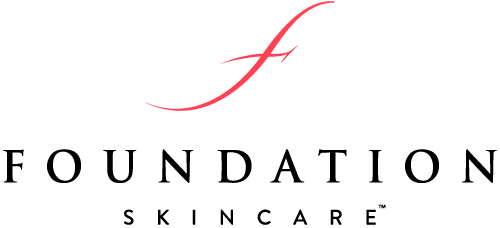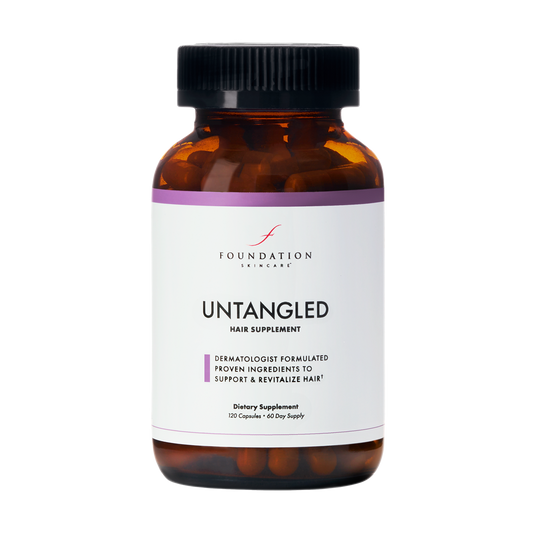Hair loss and hair thinning is the result of a combination of factors like genetics, hormonal fluctuations, medical conditions, and aging. And while anyone can lose hair on their head, it tends to be more common in men. While hair loss treatments and serums can help slow and potentially reverse hair loss, making sure you’re getting an adequate intake of essential vitamins and minerals can be a huge help. Most of these nutrients can be derived from a balanced diet, but hair growth supplements can help close any nutritional gaps your diet doesn’t cover.
In this article, we'll explore the vitamins, minerals, and supplements that are essential for hair growth in men, along with lifestyle tips to maintain healthy hair.
Vitamins Essential for Hair Growth in Men
Several vitamins play crucial roles in supporting healthy hair growth in men. Here are some of the more prominent ones:
Biotin: Biotin, or vitamin B7, is perhaps the most well-known vitamin for hair growth because it supports keratin synthesis, a building block of hair. Though it’s found in many foods, such as liver, eggs, cauliflower, and mushrooms, some research has shown that men with male pattern baldness had slightly lower levels of biotin than those with no pattern hair loss.
Vitamin D: Vitamin D deficiency is highly common in older men, and studies show there is a significant correlation between inadequate vitamin D intake and the severity of male pattern baldness. This is likely due to its role in signaling pathways of growth and differentiation of hair follicles. The cells that produce keratin in your hair follicles also depend on vitamin D for growth.
Vitamin E: Vitamin E is an antioxidant which helps protect hair follicles from oxidative stress, which can lead to hair loss. It is worth noting that some research shows that over-supplementation of certain nutrients, including vitamin E (along with vitamin A and selenium), have also been linked to hair loss, so it’s essential that you take the recommended daily amount of vitamin E of 15 mg daily and no more than that.
Vitamin C: Vitamin C is another antioxidant that plays a role in hair health. Along with defending against free radical damage, vitamin C is necessary for collagen fiber synthesis and aids in the absorption of iron, a mineral that plays a critical role in hair growth.
Vitamin A: As long as you don’t take too much, vitamin A supplementation can also help support hair growth by regulating hair follicle stem cells and helping to maintain functioning of the hair cycle.
B vitamins: Beyond biotin, other B vitamins, like folic acid, niacin, and pantothenic acid can help support circulation and the production of red blood cells to minimize hair thinning and support new growth. Deficiencies in these vitamins have all been connected to hair loss in studies.
UnTangled Hair Supplement
• Reduces shedding & thinning
• Strengthens hair follicles
Sale price
$65
Essential Minerals for Hair Growth in Men
Like vitamins, minerals also play important roles in supporting healthy hair growth in men. Here are just a few of the noteworthy ones:
Zinc: A number of studies have found a correlation between male pattern hair loss and low zinc levels. This mineral has several important functional activities within the hair follicle, specifically accelerating hair follicle recovery.
Iron: Iron deficiency is said to play a role in pattern hair loss in both men and women. This mineral carries oxygen to your body's cells, which helps them grow and repair. This includes the cells that stimulate hair growth. Some signs you are iron deficient and can benefit from iron supplementation are tiredness, pale skin, and shortness of breath.
Selenium: Some research has shown that an imbalance in selenium levels may trigger oxidative stress, leading to hair cycle impairment and hair loss.
Benefits of Hair Supplements
As the name suggests, supplements should accompany a healthy, balanced diet, not replace it. The best way to ensure you are getting the nutrients your body needs to support healthy hair is to eat a wide variety of fruits, vegetables, and proteins. Aiming to “eat the rainbow,” or as many colors as possible is one easy way to ensure your diet consists of a variety of vitamins and minerals. If your diet is limited, or you have a medical condition that prevents you from getting essential vitamins and minerals from your diet, dietary supplements can help close those gaps.
What to Consider Before Choosing a Hair Supplement
Many men’s hair supplements will contain most of the vitamins and minerals we mentioned above, but in quantities that overload your body, potentially risking toxicity. As we stated earlier, over-supplementation with vitamins like vitamin E, vitamin A, and selenium can actually be detrimental to your hair, exacerbating the very issue you hope to avoid. Many hair supplements also contain fillers and additives with no nutritional value.
Best Men’s Hair Growth Supplements
Foundation Skincare’s UnTangled Hair Supplement is one of the best hair supplements for men (and women!) because it contains a dermatologist-formulated blend of vitamins, minerals, herbs, and acids in quantities that benefit your hair without overloading your body.
In addition to all the vitamins and minerals listed above, UnTangled also contains saw palmetto, which helps block DHT hormone. DHT is converted from testosterone and when there is too much of it, it can lead to hair follicle shrinkage in those who are genetically predisposed to hair loss. Saw palmetto blocks the conversion of testosterone to DHT to protect against hair follicle shrinkage and minimize this threat. At the same time, saw palmetto has potent anti-inflammatory properties to further protect hair follicles.
UnTangled also contains marine collagen, which is teeming with the amino acids your body needs to create keratin, and horsetail extract, which is a natural hair conditioner that stimulates hair growth.
For best results, use UnTangled Hair Supplement with FS Hair Serum, a topical serum proven to stimulate hair stem cells without minoxidil. Using these products together helps to minimize loss and accelerate growth from the inside out by feeding your body with the micronutrients it needs to create new hair and addressing your hair follicles directly.
Lifestyle Tips for Healthy Hair
We already mentioned the importance of following a balanced diet. Other lifestyle tips to support healthy hair include staying hydrated, managing stress levels, exercising regularly, and investigating health conditions that may contribute to hair loss, such as hormonal imbalances. If you have long hair, avoid hairstyles that tug and pull on your hair, as this can put extra stress on your follicles, and try not to wash every day. Giving up smoking is another action you can take to not just improve your overall health but reduce related inflammation that can take a toll on your hair.
Maintaining healthy hair requires a combination of efforts, with one potential option being dietary supplementation. By incorporating essential vitamins and minerals into your daily routine and making healthy lifestyle choices, you can support optimal hair growth and combat hair loss effectively. If you still need more support, consult with your dermatologist, especially if you have underlying health conditions or are taking medications.
Find more tips and resources on maintaining healthy hair and skin in the FS Journal.
References:
-
https://www.healthline.com/nutrition/biotin-for-men#hair-growth
-
https://www.ncbi.nlm.nih.gov/pmc/articles/PMC2682464
-
https://pubmed.ncbi.nlm.nih.gov/32516435/
-
https://www.ncbi.nlm.nih.gov/pmc/articles/PMC5315033/
-
https://www.ncbi.nlm.nih.gov/pmc/articles/PMC6380979/
-
https://www.ncbi.nlm.nih.gov/pmc/articles/PMC9324272/
-
https://www.ncbi.nlm.nih.gov/pmc/articles/PMC7277952/
-
https://www.ncbi.nlm.nih.gov/pmc/articles/PMC6380979/
-
https://www.ncbi.nlm.nih.gov/pmc/articles/PMC2861201/
-
https://www.ncbi.nlm.nih.gov/pmc/articles/PMC3678013/
-
https://health.clevelandclinic.org/im-low-in-iron-can-this-cause-me-to-lose-my-hair
-
https://www.ncbi.nlm.nih.gov/pmc/articles/PMC5939011/





